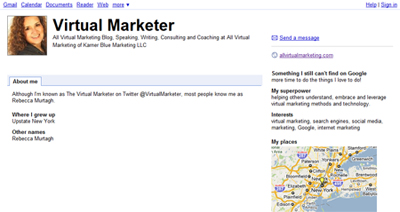E-Commerce, E-Retailer and Business-to-Business websites may each calculate a conversion differently, but the conversion process of an enterprise, B2B or B2C customer is very much the same.
Promoting Clicks to Conversion
To succeed in conversion of visitors to customers, you must 1st be visible, provide the information your customers are seeking to earn the sale or conversion during any one, and preferably all of the 3 phases of online shopping.
Pre-Qualifying the Click
Conversion has as much to do with attracting qualified clicks as it does top position on the search engines, CTR on PPC programs, effectiveness of direct mail, telemarketing, media campaigns and social media. The more informed the website visitor is when they click to visit your website, the more likely you are to achieve a successful conversion.
How can you improve conversion of website visitors to customers?
The 3 Phases of Online Shopping
- Research
- Comparison
- Buy
It doesn’t matter if you are selling gourmet chocolate, luxury spa services, consulting services, retail products, franchises or memberships. There is a purchase decision being made, therefore you want to be “front of mind” during every phase of the process.
Online Shopping Phase 1: Research
The research phase is where your intended client or customer is determining exactly what will fill the need they have identified. I’ll use myself as an example…I’d been shopping for a new smartphone for months. Trying to decide whether to buy and iPhone or find a phone offered by my current carrier that would meet my needs became a process. It began with Research. I am exploring my options…comparing features, coverage, price but more importantly, I am reading video reviews, blogs, forums of people that have both of the phones I am comparing to help me make my decision. Throughout this process, I am being exposed to opportunities to purchase, which will influence who I will make my final purchase from.
How to Promote Conversion During Shopper Research
Think about the “Research” mode your clients or customers are going through. Are you offering the information they need to choose you as one of the solutions to compare? How are you making the information visible? You should be facilitating Web 2.0 reviews or testimonials, videos, etc as well as search engine optimizing content on your website that will put your solution in the path of future client and customers. Are you?
Online Shopping Phase 2: Comparison
Once your clients or customers have narrowed down their choices, they move on to compare solutions. In the comparison shopping mode, the final decision will depend on what motivates the sale and how well your value proposition meets their needs.
Once the solution, product or service has been identified, you now are communicating with a more informed customer or client, one that is ready for conversion from visitor to customer.
Promoting Conversion During Shopper Comparison
The more effective and honest you are about embracing and elevating awareness about your unique selling proposition (USP) the better you will fare in comparison against competition.
Provide every detail relevant to why they should choose you over the competitor.
For example, if the decision is being made on price only, it won’t matter that you have the world’s best anything…the two don’t connect. However, there are typically various factors that play into the online purchase decision, price, quality, location, customer reviews, warranty, service, results, etc. The better you are at telling the story of how well you qualify under each, the more powerful you stand to win the comparison.
I have clients that fear the comparison. Do NOT fear comparison against your competitors. Your customers and clients are savvy, but they only know what you are willing to tell them. Embace what makes your product or service the better choice and make it easy for them to identify it and embrace it. You are then in the company of the most qualified audiences where you are most likely to succeed.
Online Shopping Phase 3: Purchase
Congratulations. Once you make it to the purchase decision, the homework has been done, reviews have been read, providers or sellers compared…and they are ready to make the final decision…if you don’t blow it.
So many e-commerce companies and solution providers agonize over the abandon rate of purchases from the shopping cart. This lost conversion applies to more retailers. The abandon rate applies to anything you can think of that is being sold online. Why is the conversion lost?
Shoppers don’t like surprises, like unexpected shipping, handling fees, privacy statements, sales tax, being redirected to another site, there is a security certificate warning, etc.
How to Improve Conversion of Online Purchases
If your customer gets to close the deal and buy, and something, anything, doesn’t feel consistent with why they chose you in the first place…they bail, and fast. Sale Lost.
The easier you make the sale conversion from the research and shopping phases, the more likely you are to close the sale during one of those phases, or at very least qualify as “the one” they want to purchase from. You’d be surprised to know how many businesses and websites forget to ask for the sale.
Calls to Action may seem like a fundamental basic of website design. Do not take this last, most crucial component for granted, or that your agency, webmaster, designer or developer is thinking about the conversion. You must drive a strategic click-to-conversion process because you care about it most.
How to Promote Conversion Throughout Your Website:
- Make it easy for customers to find your solution. (via search, social media, reviews, etc.)
- Make it painfully obvious why the customer should choose you over your competitor.
- Special offers, promotions and discounts should be easy to find and implement.
- Include calls to action from every page on your website…even if it is simply a link to where they can buy (including requesting a quote, demo, appointment, etc.)


